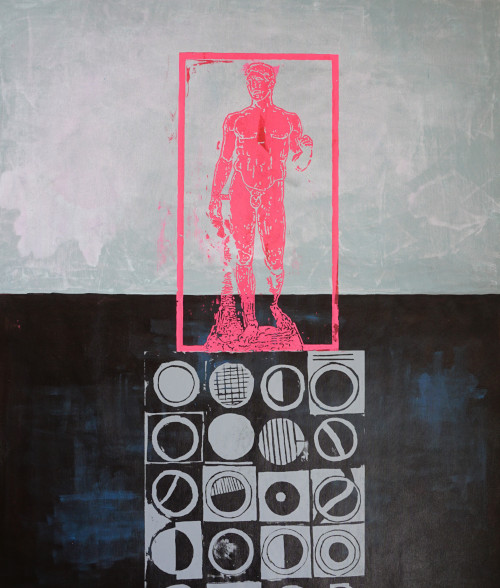Exhibition
«Entre Lugares» by Hamilton Francisco
May 6 to June 30, 2024
Convento São Francisco (Coimbra)
What are these powers? Do I have them? Am I normal or a mutant? Are we all mutants, although we don't know it yet? Something is missing, but what? Will we have the ability to be who we want to be, or are we forever confined to being what others want us to be?
The X-MEN project “Masculinities, empathy and non-violence” was inspired by the Marvel Comics created by Stan Lee and Jack Kirby in 1963. In the books, known for the characters' superpowers and for exploring themes such as prejudice, diversity or identity, the X-Men are a subspecies of humans who fight for peace and equality between “normal” humans and mutants. This conflict is often compared to real-world conflicts experienced by minority groups. The X-MEN have always represented diversity, difference and the misfit, with powers that manifest in adolescence and often leave them at a loss as to what to do, making them the perfect analogy for the young boys and girls in the Educational Centres where the project took place. The X-MEN project uses the analogy of mutants to promote the capacity for self-transformation while simultaneously trying to break intergenerational cycles of violence.
What are called dominant and hegemonic masculinities can be reimagined, renegotiated and reconstructed, both by understanding the new patterns of violence that must be prevented, on the one hand; and by understanding, adopting and practising care as a transformative proposal in the lives of young, mutant, adolescents with superpowers.
X-MEN's main objective was to promote non-violent, empathetic and caring masculinities, and to develop strategies that break cycles of stigma, thus contributing to sustainable violence prevention, while at the same time seeking to promote gender equality in three countries: Portugal, Spain and Croatia.
Freedom, being deprived of it, returning exactly to the past, to what it was before, living between places. Places that can be transformed through art, listening and trust. That was X-MEN's message to all mutants with superpowers.
Programme
From 6 May to 30 June | Exhibition “Entre Lugares” by Hamilton Francisco (Babu)
Note: As young teenagers are the target audience of the scientific project and artistic intervention, schools can request visits to the exhibition at their own time outside normal opening hours.
6 May, 18h00
- Opening session with the Councillor for Social Action of the Municipality of Coimbra, Ana Cortez Vaz; with the Vice-Director of the Centre for Social Studies of the University of Coimbra, Antonieta Reis Leite; and with the co-coordinator of the Observatório Masculinidades.pt, Tatiana Moura.
- Guided tour of the exhibition “Entre Lugares” by the artist Hamilton Francisco (Babu);
- Conversation with Haydée Caruso about the XMEN project as part of the series Masculinities in Debate of the Observatory Masculinidades.pt.
28 June, 18h00
Second session of the series Masculinities in Debate “One life is not enough”, with António Brito Guterres and Hamilton Francisco (Babu), in partnership with the Working Group on Citizen Science and Education (CC-Edu) and the CES Observatory Masculinidades.pt, with visits from students from schools in Coimbra.
Bio note
Hamilton Francisco or simply Babu was born in Angola in Malanje on 25 April 1974. From an early age, he had a passion for painting. He studied industrial design at the Manauto Training and Technology Centre in Luanda. In Portugal, he deepened his knowledge of art, working with different visual materials. After taking part in the Museus no Centro Project in Coimbra, he created and developed the artistic research project “Memória e Identidade”, where he reflects on and materialises major issues in the history of Africa in its relationship with the world, and the relationship between settler and colonised. Babu has participated in several solo and group exhibitions, as well as artistic residencies in various countries. His works are in public and private collections in Angola and abroad, such as the Millenium Atlântico Foundation, CLC Arquitectos, Presidente Meridien Luanda and the Jean Clode de Almeida collection.


